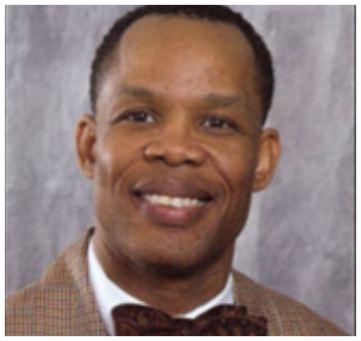[ad_1]
By Kevin Daniels
As we approach Father’s Day, I had the chance to attend the Can We Talk Conference: The State of Mental Health in the Black Community in Washington D.C., sponsored by the Boris L. Henson Foundation (Taraji P. Henson), Black Mental Health Alliance (BMHA), and the Better Tomorrow Starts Today (BTST).
Several sessions highlighted the necessity and placement of “fathers” in the lives of their children across the life span, and many of the men acknowledged the historical challenges of family involvement. Most challenged the current prevailing “media” thought that they are not involved. Many stated that despite multigenerational trauma on the personal, institutional, and structural levels, the mental health and wellness of their children and families is of utmost importance to them – primarily their self-care as well. What was stated by these men is consistent with what the Center of Disease Control (CDC), and a study by Dr. Travis Dixon stated that, “it is a dangerous distortion to Black families to incorrectly depict Black fathers as uninvolved or not present in the lives of their children, thereby, inaccurately suggesting that Black fathers are absent and abandon their children, especially given there is a lack of evidence to support those claims.”

(Minister’s Conference) and associate professor, Morgan State
University, School of Social Work.
The two-year study found that cable and network news shows, national and local newspaper articles, and online opinion sites continue to proliferate the false interpretive claims of the historical “Moynihan Report” that depicted Black families as “crumbling” because the fathers were not present.
Many of the Black fathers supported previous findings, “that they were aware of the impact of mental health, multigenerational trauma and also the statistics and media interpretations of their accountability and responsibilities to their family, but that the media is only structured to capture targeted snapshots of some Black fathers lives and not the larger moments of most Black fathers.” None of the fathers diminished the notion that they “didn’t have problems and challenges navigating the multiple responsibilities of their lives including family, health, work, and the continued negative barrage of images of some Black males moving through the school to prison pipeline,” but many acknowledged the need to destigmatize mental health and the need for wellness and more healing interventions on an individual and group level.
Coincidently, Charlamagne Tha God reiterated his story as a Black man, husband, father, and the chapter in his book on Blackanoid and PTSD, along with the clinical correlation to anxiety living in America, but that working through it is not an option, it is a necessity – our children and families need us. It was clear by the resilient collective voices in the room that the Black male presence is of a continued fierce urgency, but most importantly, “Fatherhood” is an ongoing and preeminent need.
To that end, we honor all fathers, but more specifically, we honor Black Fathers in the quote by Stephanie Lahart, “Black Fatherhood is an incomparable gift to Black men that truly comprehend what it means to be called dad, daddy, father, or pops. What a privilege it is to raise a child with patience, understanding, communication, support, encouragement, friendship, guidance, and unconditional love. It is an absolute honor!”
Dr. Kevin Daniels is chair of the Civic Action Committee (Minister’s Conference Baltimore/Vicinity), an associate professor at the School of Social Work and pastor of St. Martin Church.
The opinions on this page are those of the writers and not necessarily those of the AFRO.
Send letters to The Afro-American • 1531 S. Edgewood St. Baltimore, MD 21227 or fax to 1-877-570-9297 or e-mail to [email protected]
[ad_2]
Source link
